Critical socialist groups in China and in Chinese-speaking communities abroad have for a while now been in the throes of re-establishing a presence, and in recent months this welcome trend has accelerated. The groups include dissident Maoists, anarchists, libertarian communists, and Trotskyists. Today, this revival is no bigger than the tiny cloud spotted rising from the sea by Elijah’s servant, small as a hand. Potentially, however, it may mark the start of a downpour.
Several new-left organisations, some inspired by the legacy of Maoism, others by that of Chinese Trotskyism and other revolutionary currents, have sprung up in recent months and years among students in China, Chinatown, and the diaspora and in Taiwan. The setting up in mainland China of Trotskyist study groups by young people calling themselves “Revolutionary Communists” is already a reality, though not yet a matter that can be discussed in detail given present conditions in China, which are especially dangerous for the leftwing critics of the Chinese Communist Party (CCP). Other migrant and ethnic Chinese leftists in the diaspora and Hong Kong have got into touch with anarchists and Trotskyists (both Chinese and non-Chinese) and their organisations. In China and the Sinophone, critical-Marxist reading groups have been set up on campuses in many Chinese cities. They include groups dedicated to the study of Chen Duxiu, founder of the CCP in 1921 and of the Chinese Left (Trotskyist) Opposition in 1931; student societies calling themselves “Maoist Marxists”;[1] specifically Trotskyist societies; a New Left Society based among students in Hong Kong; the Left Chinese Student Association, active in the UK and elsewhere; and the China Deviants, a collective of mainland Chinese international students formed in November 2022[2] that is active in China and among Chinese diasporan communities. Other groups operate under different names in different places, though it is hard to keep track.
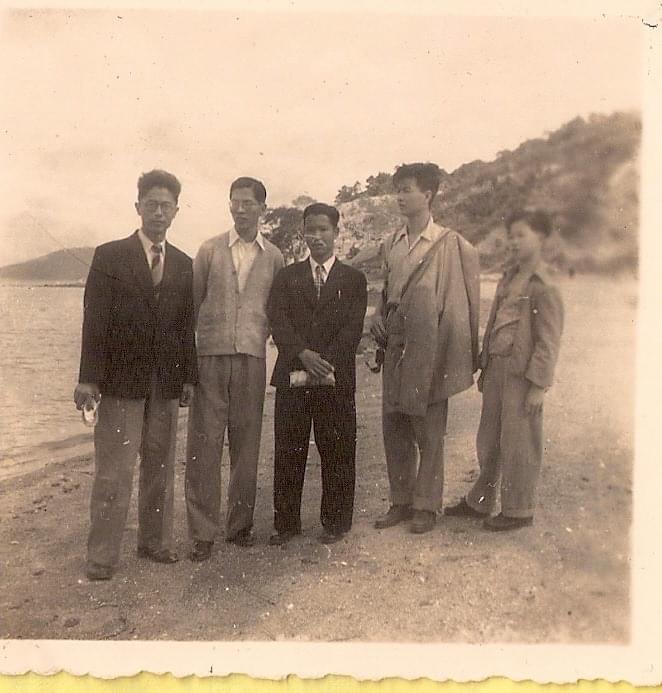
One group dedicated to critical socialism fights to delink “socialism” from the hegemonic Chinese state, where the word serves as rhetoric to cover up growing inequality, and to bring it back into the “everyday struggle” for worker power in the factories and the migrant villages. Supporters of critical socialism argue that state-led marketisation and privatisation have increased inequalities and engendered an alliance between capital and China’s “red bourgeoisie.” They see the social movement that inherited the legacy of mass organising during the Cultural Revolution and continued to represent it until the late 1970s as a threat to this alliance and part of the reason that China’s political elite made the market transition after Mao’s death. But this critical socialism has several constituents that are not necessarily headed in the same direction. They include supporters of the new left (as distinct from the old Maoist left) but also supporters of liberalism and New Confucianism. All three groups see inequality as “post-socialist” China‘s most pressing problem but differ on how to solve it – by a return to Maoism, by working within the party-state, by introducing a market free from the “gangster logic” of government regulation, or by reasserting traditional Confucian values, as in capitalist Singapore under Lee Kuan Yew in the 1990s.[3]
China Labour Bulletin is a non-governmental organization based in Hong Kong that supports and engages with the workers’ movement in China, where it aims to hold the official trade unions accountable to their members and involve workers in them so that they become truly representative. It was founded by Han Dongyang, a onetime railway worker in Beijing who helped set up the Beijing Workers’ Autonomous Federation during the Tiananmen Square protests of 1989.[4] It is not part of the new radical movement now springing up among Chinese in different places, but is is an indispensable source of information on developments in the labour movement that most of those groups hope to influence.
Perhaps the most ideologically cohesive and uncompromising of the new groups is Chuang, which believes that China has completed the transition “from an isolated state-planned economy into an integrated hub of capitalist production”. Chuang describes itself as “(anti-state) communist” and has strong anarchist resonances. Its website calls on those who farm, cook, clean, and otherwise work for China’s billionaires to batter down the gates into the banquet hall, whereupon “the possibilities for a new world” will emerge “beyond the bounds of the slaughterhouse called capitalism”. Chuang uses the image of a horse breaking through a gate, the Chinese character 闖, pronounced chuǎng, in all its meanings: to break free, to attack, to break through, to force one’s way in or out, to act impetuously, to attend a feast without being invited.[5]
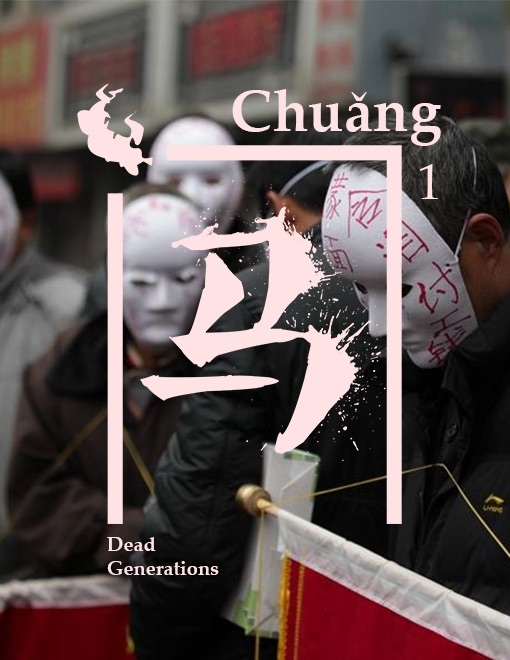
Few of the new groups have political positions as settled as those of Chuang. Others see themselves as part of a broad, loosely organized, and open movement. Typical of the new groups is Lausan, a collective of writers, translators, artists, and organisers that “has no founders, only members,” and describes its role as campaigning “across the world” for “transnational left solidarity and struggling for ways of life beyond the dictates of capital and the state”.
Even more loosely organised and politically eclectic are the China Deviants, who also have a small international presence. Lausan says of them: “The politics of China Deviants, as with others in this new generation of democracy activists, are still developing and will doubtless be in flux as the movement grows. Though we cannot predict the course of the movement’s development, we hope to see a space for a new Chinese left to flourish in it.”
Other groups include Hong Kong’s New Left Society. It describes itself as follows: “New Left Society […] aims to provide a platform for academic discussion for […] students to explore theories, and reflect upon the international New Left ideas and practices since the radical movement of the Long Sixties in Hong Kong and around the world. […] While under the wing of conservative liberalism, universities today enjoy more or less autonomy and monopoly over the pursuit of truth, and at the same time higher education is fully integrated into the corporate-state network of capitalism. Knowledge, as a tool of liberation and creation, has now ossified into serving markets and technocrats. Overlooking this fact, lecturing on justice and the humanities in the university will only become the ethical narrative of Ivory Tower, or serve to embellish the culture resume of technical talents rebranded as ‘global citizens’. Narrowing the focus on this fact, the so-called critical theory will only end up as a kind of disillusioned scepticism regarding the power-knowledge collusion. […] New Left Society hopes to restore the Jacobin tradition and the ideals of practice, criticize the bureaucratism of academic industrialisation, as well as provide an anticipatory outline for the future. […] The Global Leftists need to revive the languages of internationalist solidarity and socialist hope. […] When the Bastille was overrun and Louis XVI said, ‘This is a rebellion!’, each of us should remind him [as the progressive minded Duke of La Rochefoucauld-Liancourt did in 1789], ‘No, Your Majesty, this is a revolution.’”[6]
In the first half of the twentieth century, the international ties of the Chinese revolutionary movement were strictly controlled by the Communist International and its successor bodies, acting out of Moscow. Solidarity actions by Communist-influenced trade unionists in Liverpool, Southampton, London in England and Sydney in Australia had a big impact among Chinese seafarers and in Chinatown in the 1930s and 1940s.[7] During the Cultural Revolution Beijing promoted political movements among ethnic and overseas Chinese in many countries.
However, such movements rarely moved beyond the confines set by Beijing and more or less expired, initially after the start of the Sino-Soviet split and then, more completely, after Mao’s death and the second rise to power of Deng Xiaoping, when a further retreat into nationalism led to a definitive end to any official pursuit in China of even a semblance of socialist internationalism.
As for the Chinese Trotskyists, they too were active on the Chinese mainland in the 1930s and 1940s and in 1950–52, before their disappearance into prison in 1952, where they remained for decades. However, there was little if any real contact between them and fraternal sections of the Fourth International in other countries. This was initially because of language barriers, wars, political turmoil, and surveillance by Chinese and colonial authorities, which made a tie between Chinese and non-Chinese revolutionary socialists hard if not impossible to maintain, and then because of the 1952 crackdown on Trotskyism in China. Later, starting in the 1960s, a brief flirtation by the main wing of the Fourth International with guerrillaist strategies of the sort pioneered by the Maoists led to a neglect of the fate of the imprisoned Chinese Trotskyists that today can only be seen as a cause for shame and regret.
Today’s presence of new-left groups in the Chinese diaspora, among Chinese students fluent in languages other than Chinese and among Chinese labour and business migrants better educated and with a broader vision than in the past, has opened up new possibilities for cooperation and solidarity between Chinese and non-Chinese socialists, including the Trotskyists. Economic globalisation and Beijing’s embrace of full-blown capitalism mean that solidarity across international frontiers is more pertinent and urgent now than it ever was. It is therefore the duty of socialists everywhere to solidarise with China’s resurgent critical socialists and to support their campaigns and protect them against the Chinese and foreign states wherever necessary and possible.
But although the political reawakening of some young people in China and the Chinese diaspora is potentially important, their movement is only just beginning. A veteran of the Chinese Trotskyist movement has written to me as follows: “The reawakening of young people now is of course a great thing. It is good that some of them are beginning to reach out to different leftist traditions, including the Trotskyists. But for now and for us, we engage with them chiefly in a dialogue. The road ahead is likely to be long. The lack of continuity on the Chinese left and of an enduring independent left current has made the consolidation of a new left organisation among young leftists difficult. The tone we set must be one of ‘prudent optimism’.”
FURTHER READING
Prophets Unarmed – Chinese Trotskyists in Revolution, War, Jail, and the Return from Limbo Edited by Gregor Benton
Mao Zedong Thought by Wang Fanxi Editor / Translator: Gregor Benton
Zheng Chaolin, Selected Writings, 1942–1998 Volume Editors: Gregor Benton and John Sexton
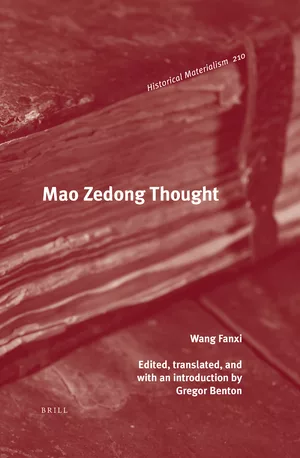
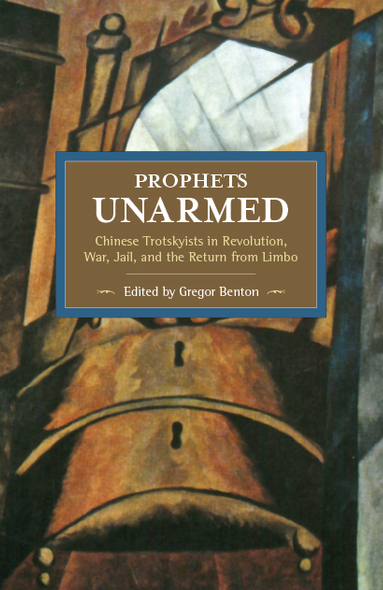
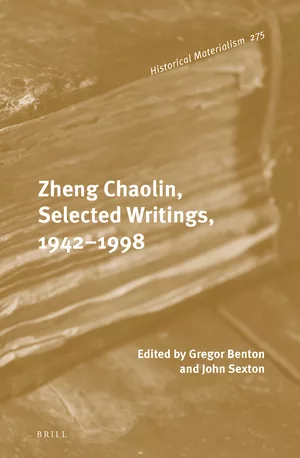
[1] Yuan Yang, "Chinese students clash with guards over Marxist society crackdown," Financial Times, 28 December 2018.
[2] What next for China’s politicised youth? An Interview with China Deviants by China Deviants and Lausan Collective, 19 January 2023.
[3] Ian Liujia Tian, "Socialism from the Grassroots: New Directions of Leftist Organizing in Post-Socialist China," Upping the Anti: A Journal of Theory and Action, no. 22, 30 January 2022. Upping the Anti is a volunteer-run movement journal based in Toronto. Ian Liujia Tian is a feminist ethnographer who focuses on labour, queer and feminist culture and politics in post-Cold War China.
[4] Chloé Froissart, “Han Dongfang (in collaboration with Michaël Sztanke), "My struggle for Chinese workers,” China Perspectives, 2015, no. 2, pp. 64-65.
[5] http://chuangcn.org/about/
[6] Zhongda xinzuo xueshe, "Jianjie" (Introduction), 3 April 2022.
[7] Gregor Benton, Chinese Migrants and Internationalism: Forgotten Histories, 1917-1945, London: Routledge.
Art Book Review Books Campism Capitalism China Climate Emergency Conservative Government Conservative Party COVID-19 Creeping Fascism Economics EcoSocialism Elections Europe Far-Right Fascism Film Film Review Fourth International France Gaza History Imperialism Iran Israel Italy Keir Starmer Labour Party Long Read Marxism Marxist Theory Migrants Palestine pandemic Police Protest Russia Solidarity Statement Trade Unionism Trans*Mission Ukraine United States of America War


In this context, it might be worth mentioning this book:
Ralf Ruckus: The Left in China. A Political Cartography. Pluto, 2023.
These are invaluable sources for a deeper understanding of the Chinese revolution and the international communist movement. They will help people interested in the Chinese communist revolution acquire an alternative perspective apart from the dominant, teleological discourse on the Comintern, United Front, the rise of Mao, etc. I have long been collecting the writings of Zheng Chaolin, Wang Fanxi, et al, and should thank Professor Gregory Benton for his dedication to excavating these sources. All in all, all dissenting voices should be heard.